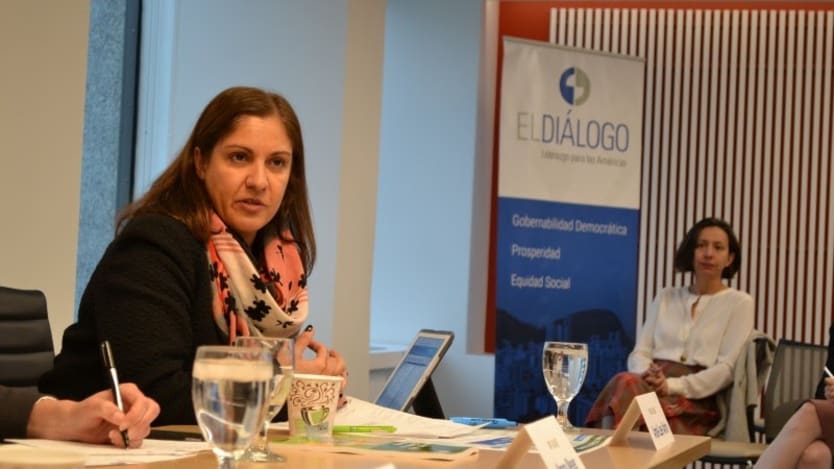
LONDON — The U.K. government’s development finance institution, CDC Group, launched a climate strategy Thursday that it claims will see the organization achieve net zero emissions by 2050.
While the strategy still allows for some investment in gas infrastructure under certain circumstances, CDC will no longer put any U.K. aid money into coal or oil investments, whether directly or through intermediary funds, it says.
The move was broadly welcomed by environmental campaign groups and experts, who said it was a thorough and “very positive” step to reducing the greenhouse gas emissions that contribute to climate change, and set a precedent for other institutions. But climate policy specialists said questions remain over its delivery and CDC’s existing fossil fuel investments.
Should aid be used to fund fossil fuel investments?
Billions of aid dollars are spent on fossil fuel activity each year. Supporters say there is no alternative to getting some countries the energy they need to develop — but detractors say that is a poor excuse.
The group, which is owned by the Department for International Development, made commitments worth £1.66 billion ($2.07 billion) in 2019 and has been criticized in the past for investing hundreds of millions into fossil fuel projects.
Now, it says its new climate strategy will make it fully aligned with the landmark 2016 Paris Agreement on climate change, which aims to limit global warming to “well below” 2 degrees Celsius.
Next year, 30% of its portfolio will go to climate finance investments, such as renewables and relevant manufacturing markets like electric vehicles.
A climate criteria will be used when deciding its priority sector investments. The strategy does not involve carbon offsetting or buying carbon credits, but instead focuses on reducing its portfolio’s emissions. There is also a commitment to a socially-inclusive “just transition,” ensuring the strategy respects workers’ rights, women, and communities, and creates new jobs and skills, according to a statement.
Government funding for fossil fuel infrastructure, particularly using aid money, is controversial, amid dire warnings from the scientific community that the world is not on track to limit global warming sufficiently. It is widely feared that the ensuing climatic changes could have a devastating impact on the entire planet, and on the global south in particular.
“As governments, multinational institutions, and private investors plan the global economic comeback from COVID-19, there exists a once in a generation opportunity to build back better for an inclusive, green and resilient recovery,” said Nick O’Donohoe, chief executive at CDC, in a statement.
“Climate change remains the single largest challenge faced by the planet and is the defining issue for our generation and for those that will follow. That is why we have launched this ground-breaking climate change strategy that will shape every single investment decision we make moving forward,” he added.
In line with its new strategy, coal is completely out for CDC: It will no longer invest in coal mining, processing or trading, or any type of coal-fired power plants, including their refurbishment.
Oil is gone too. There will be no new investments in upstream oil exploration and production, midstream oil, including refineries, or power plants and mini-grids powered solely by heavy fuel oil. There will also be no new funding for infrastructure for exclusive crude oil or coal transportation for power generation, or upstream gas exploration or production.
Amal-Lee Amin, CDC’s climate director, confirmed to Devex there are no circumstances under which money would go to oil and gas. “We’ve excluded all coal-related investments and oil,” she said.
But CDC could still invest in midstream or downstream gas infrastructure, in countries where emissions have not yet peaked and the investment is part of a plan to reach net zero. This could be “reviewed” if the U.K. government guidance on using official development assistance for fossil fuel investments changes. Avoiding stranded assets — infrastructure that is no longer economically viable — is “very much part of the analysis we’re developing” to become aligned with the Paris Agreement on climate change, Amin said.
For campaign groups and researchers, the attention now turns to the delivery of those promises.
“They now will be held to account to demonstrate that any investment like that [in gas infrastructure] would be in a country that has a zero-carbon strategy, so they’ve given us a stick to beat them with … if they don’t do that,” said Andrew Scott, acting director of the climate and energy program at the Overseas Development Institute think tank.
While Scott welcomed the strategy, he added: “The emphasis is all on future investments, there’s nothing there about disinvesting from existing fossil fuel investments … Are they proposing to do that?”
Amin told Devex: “We wouldn’t do a quick fast exit… We would always do an exit as and when is appropriate to the investment. … There are strong reasons why we wouldn’t [divest quickly] both from a development impact perspective as well [as] potential to the U.K. taxpayer.”
Another expert, speaking anonymously to preserve professional ties, highlighted the ongoing concerns of many in the development community and warned of the risk of a shift toward aid-spending in the “national interest” as DFID is folded into the Foreign & Commonwealth Office later this year to the form the Foreign, Commonwealth & Development Office.
This could impact how CDC invests its money, increasingly conflating commercial and political interests with its development objectives, the expert suggested.
“That to an extent has been the experience of the U.K. government across different departments supporting oil and gas in developing countries in the past,” the source said. They added: “It is a particular concern for the credibility and ambition in driving international climate action during the U.K.’s presidency in 2021 of both the COP26 U.N. climate conference in Glasgow and of the G-20.”
The new FCDO would be off to a “rocky start” if there was still a lot of fossil fuel funding flowing through it, they said.
Amin denied that CDC’s climate strategy might be weakened by political changes.
“The strategy is clearly a commitment that is a standalone for CDC, and of course the U.K. as host of COP26 also has very high ambitions for climate and that’s our mandate that we have from the government and we are acting on that,” she said.
Search for articles
Most Read
- 1
- 2
- 3
- 4
- 5








